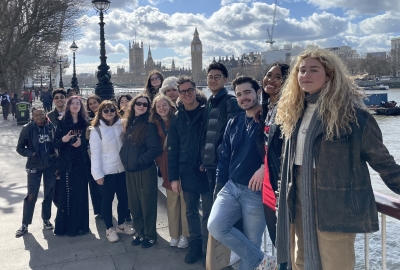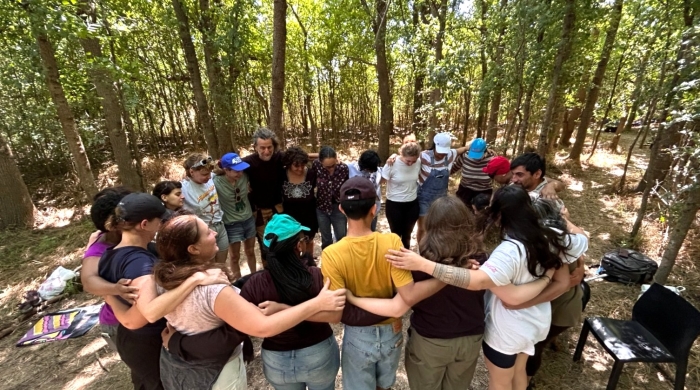
Steinhardt Dean's Global Honors Seminars
Seminars combine a semester-long course with a week-long international travel component, providing students with the opportunity to integrate a global perspective into the study of an interdisciplinary, liberal arts-based topic. Fall semester seminars include January travel, and Spring semester seminars include travel during spring break.
Identified honors students, across all Steinhardt majors, will be invited to apply in the spring semester for the upcoming academic year. All seminars are 4-credits and satisfy a Steinhardt Liberal Arts Core Requirement.
Daily activities during the travel component may include lectures, discussions, site visits, and cultural activities. For Fall courses, final course assignments are due after travel in January. For Spring courses, the seminar continues to meet after spring break and incorporates the international learning experience into the continued seminar.
Each seminar is limited to 16 students for pedagogical, safety, and travel-logistical reasons.
There is a $500 fee to be paid via credit card due upon acceptance of the program which secures your seat in a seminar, and contributes to the international travel. Steinhardt Global Affairs covers the costs of round trip airfare, accommodations, activities, some meals, and transportation within the country of the program.
Incoming Steinhardt First-Year Students
Rising Steinhardt Students
Fall: Jazz: An American Art Form in a Global Context
All music and art are a bi-products of the culture that surrounds them. Jazz music was formed and expanded in the same way. Through this course, we will unravel the varied paths that jazz followed in becoming an American art form in global context. Your direct interaction in Paris will offer you a unique perspective on how jazz music became deeply interwoven within French culture.
Spring: Cognition and Everyday Life: The Science of Neurorehabilitation
This course explores the brain and its functions. Emphasis will be on cognition and cognitive disorders. Students will explore cognitive disorders and the effect on everyday life functions in New York and in Madrid, Spain.
Spring: Global Issues in Nutrition
This course compares the similar public health crises in Argentina and the United States, focusing on the surge of obesity and chronic diseases linked to lifestyle and nutrition. Students will analyze how Argentina’s recent, aggressive interventions in the food environment differ from the strategies employed in the U.S.
Eligibility
Eligible candidates for global honors seminars must have a Steinhardt cumulative grade point average of 3.75 or higher and demonstrate a record of leadership, community engagement, and service. All levels are welcome to apply. Seminars are open to Steinhardt students only.
Students may participate in only one global honors seminar during their degree.
How to Apply
The application will be sent to eligible students each spring for the upcoming academic year.
The application contains one short-answer essay: Explain your interest in the topic and tell us how you would contribute to the common learning of the group.
Please note, there will be a separate process for incoming freshmen.
Policies
Students selected for the seminar are expected to enroll in and satisfactorily complete the requirements of the semester-long course associated with their specific seminar.
Students are required to participate in the international travel component of the seminar and fly to and from the program destination from NYC as a group, arranged by Steinhardt Global Affairs. Students are not permitted to purchase an individualized travel itinerary.
When admitted to a seminar, we will notify you of the deadline to pay the $500 program fee. You must pay this fee via credit card by the deadline provided or your seat will be offered to a student on the waitlist. If you need an extension of the deadline to pay the deposit, please request it in writing to steinhardt.global@nyu.edu.
Students are responsible for obtaining any necessary visa and/or immunizations that are required for their program destination. The NYU Health Center will advise on required and recommended immunizations and other healthcare precautions. Students should also consult with their personal healthcare providers on overall mental and physical wellness to ensure readiness for international travel.




